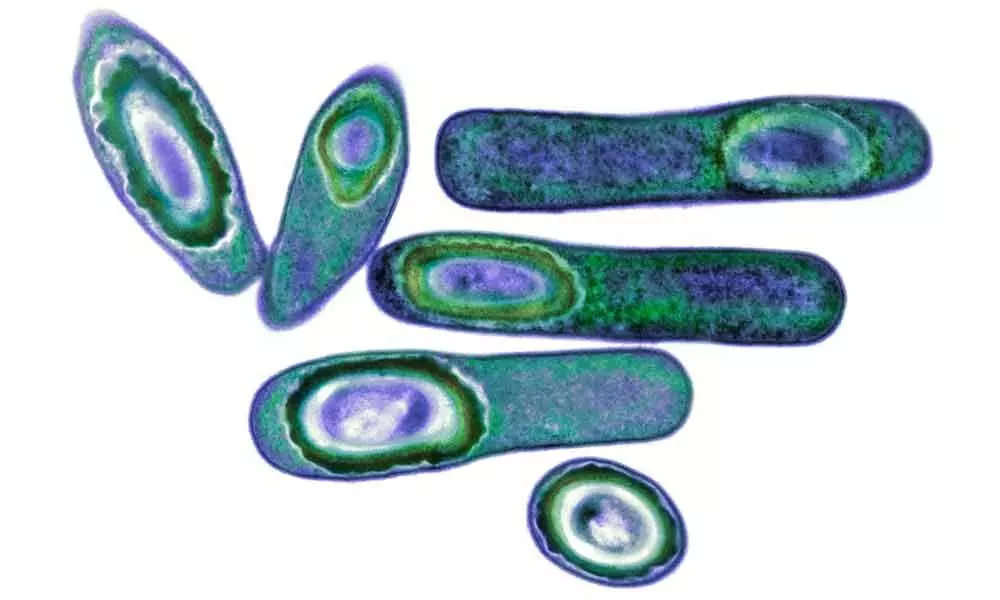Live
- Indian GenAI startups see 6 times surge in funding in Q2
- Revanth is a liar: Errabelli
- Big B pens heartfelt note for Abhishek’s work in latest film: You are Arjun Sen
- BGT 2024-25: India on brink of victory in Perth as Australia reach 227/8 at tea
- SC grants 4 weeks more to Centre to decide Balwant Singh Rajoana’s mercy plea
- Lucky for me to end up with PBKS under head coach Ponting: Stoinis
- Students pay the price for govt apathy
- Naini for new vistas to captivate people
- Can Food Cravings Impact Your Mental Health?
- Skincare and Air Pollution: 5 Simple Tips to Protect Your Skin from Toxic Air
Just In
Gut Infections Are Treated Using A Pill Made From Human Feces


A microbiome-altering therapy cleared recurrent infections with the potentially deadly bacterium Clostridium difficile.BIOMEDICAL IMAGING UNIT/SOUTHAMPTON GENERAL HOSPITAL/SCIENCE SOURCE
- Stool from a healthy donor, administered by colonoscopy, can aid in the restoration of a balanced community of gut microorganisms, allowing the infection to be defeated.
- A tablet containing bacterial spores obtained from human faeces has now passed a phase 3 study, clearing the road for the first authorisation of its nature.
Stool from a healthy donor, administered by colonoscopy, can aid in the restoration of a balanced community of gut microorganisms, allowing the infection to be defeated. Several firms are vying for regulatory approval in the United States to achieve the same effect with less invasive, more standardised medicines. A tablet containing bacterial spores obtained from human faeces has now passed a phase 3 study, clearing the road for the first authorisation of its nature.

© 2024 Hyderabad Media House Limited/The Hans India. All rights reserved. Powered by hocalwire.com






